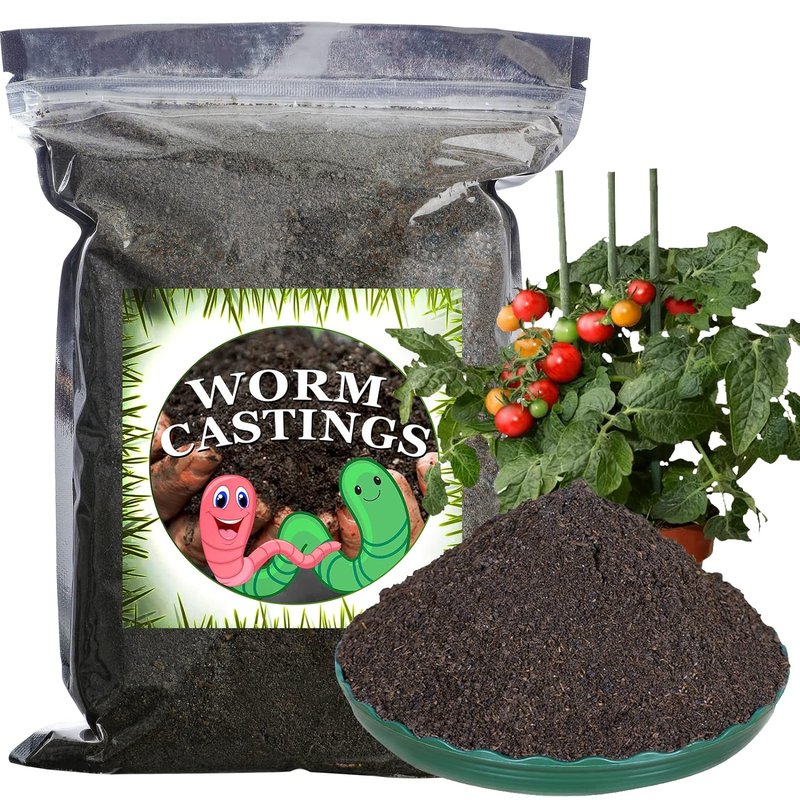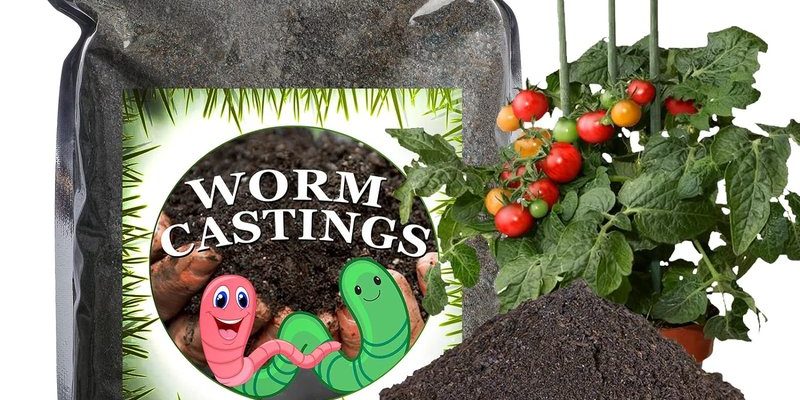
Earthworm castings are like nature’s little nuggets of gold for your soil. They’re rich in nutrients and help improve soil structure, making it easier for your plants to thrive. On the other hand, synthetic fertilizers can give plants a quick nutrient boost, but they often come with drawbacks. Let’s dive into the nitty-gritty of each option to see which might be the better fit for your style of gardening.
What Are Earthworm Castings?
Earthworm castings are essentially the worm poop of the gardening world, and if that sounds unappealing, hang tight! These tiny pellets are created as earthworms digest organic matter, such as leaf litter and decomposing plant material. The process is a bit like brewing a fine coffee: the worms take raw ingredients and turn them into something rich and beneficial. The end result is a natural fertilizer packed with nutrients that your plants will love.
What makes earthworm castings so special? For starters, they are loaded with essential nutrients like nitrogen, phosphorus, and potassium—key players in plant growth. In addition, they contain a variety of beneficial microorganisms that help break down nutrients in the soil, making them more accessible to plants. It’s like having a team of little workers in the dirt, tirelessly ensuring your plants get what they need to flourish.
Using earthworm castings can also improve the structure of your soil. They help soil retain moisture and increase aeration. Think of it as adding a soft pillow to your garden beds, allowing air and water to flow freely. The more enriched your soil is, the happier your plants will be!
What Are Synthetic Fertilizers?
Synthetic fertilizers, on the other hand, are man-made products designed to deliver nutrients quickly to plants. They come in various forms—granules, liquids, and spikes—and usually contain concentrated levels of essential nutrients. The idea is to provide a fast-acting solution for plant growth, but there’s more to the story.
Here’s the thing: while synthetic fertilizers can produce rapid results, they often do so at a cost. They provide a quick nutrient fix, which can lead to plants growing faster than their roots can support. It’s a bit like eating a sugar rush; you get an immediate spike in energy but might crash later. This can leave plants weak and susceptible to stressors like drought or disease.
Moreover, synthetic fertilizers can alter your soil chemistry over time. They might throw off the natural balance of nutrients and even harm beneficial microorganisms. Like any good relationship, balance is key, and too much of one thing—especially chemicals—can cause long-term problems.
Benefits of Earthworm Castings
Let’s break down some key benefits of using earthworm castings in your garden:
- Rich Nutrient Profile: Contains readily available macro and micronutrients. Your plants will be getting a buffet of goodness!
- Soil Health: Improves soil structure and enhances water retention, leading to healthier root systems.
- Microbial Activity: Introduces beneficial microbes that work to keep your soil alive and thriving.
- Eco-Friendly: They are a sustainable choice, promoting natural waste recycling.
Imagine your favorite dish filled with all the flavors you crave. That’s what earthworm castings offer—richness and depth that synthetic fertilizers often lack.
Drawbacks of Earthworm Castings
While earthworm castings sound fantastic, they aren’t without their downsides. Here are a few things to consider:
- Cost: They can be more expensive than synthetic options per pound, especially if you buy them commercially.
- Slow Release: Nutrient release can be slower, meaning they may not provide an instant boost like synthetic fertilizers do.
- Availability: Depending on where you live, it might be tricky to find good quality castings.
Think of them like a long-term investment. They may not always yield immediate results, but over time, they promote a healthier garden ecosystem.
Benefits of Synthetic Fertilizers
On the flip side, synthetic fertilizers come with some notable advantages:
- Immediate Results: They provide a quick nutrient boost, which can be beneficial for struggling plants.
- Precise Nutrient Control: Formulations can be tailored to meet specific plant needs.
- Easy Application: Available in many forms, making them simple to use for gardeners of all skill levels.
If you’re in a pinch and need to revive a wilting plant, synthetic fertilizers can be a lifesaver.
Drawbacks of Synthetic Fertilizers
Despite their advantages, synthetic fertilizers come with their own issues:
- Soil Depletion: Long-term use can degrade soil health and reduce microbial activity.
- Burn Risk: High concentrations of chemicals can harm plants if over-applied.
- Environmental Impact: Run-off can lead to water pollution and harm local ecosystems.
Just like the quick fix that leaves you feeling drained, synthetic fertilizers can sometimes lead to more problems down the road.
When to Use Earthworm Castings vs. Synthetic Fertilizers
Choosing between earthworm castings and synthetic fertilizers often depends on your gardening goals, so let’s look at some scenarios where each option shines.
For **new gardeners** or **organic gardening**, earthworm castings are often the best choice. They encourage healthy soil development and biological diversity. If you’re crafting a vegetable garden or flower beds and want to ensure your plants thrive in the long run, go for the castings.
If you’re facing a **specific problem**, like nutrient deficiency in existing plants or you need a quick fix for a struggling plant, synthetic fertilizers may be warranted. Just keep an eye on long-term soil health and consider switching back to more natural alternatives once your plants are stabilized.
At the end of the day, the choice between **earthworm castings** and **synthetic fertilizers** boils down to your gardening philosophy and specific plant needs. Earthworm castings offer a slow and steady approach that fosters a healthy garden ecosystem, while synthetic fertilizers provide a quick nutrient boost when you need it most.
In a perfect world, blending both could yield the best results—using synthetic options when emergencies strike while cultivating the long-term health of your soil with earthworm castings. Think of it as a balanced diet for your garden, allowing plants to benefit from both quick fixes and sustainable nourishment. Whatever you decide, your plants will certainly appreciate the effort you put into their care.

